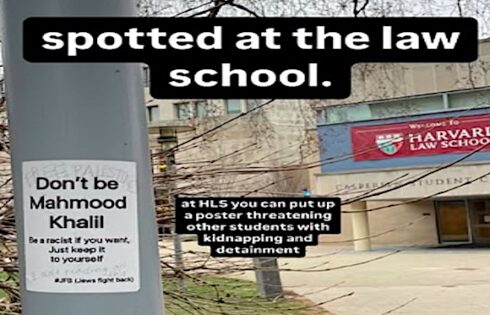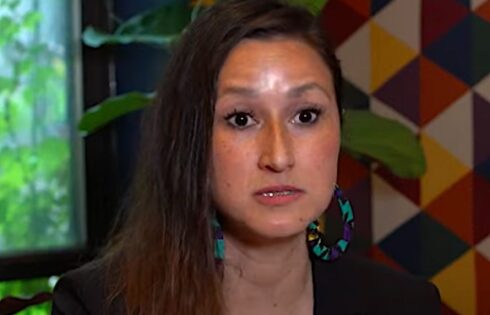A racially motivated prank against white male students is ignored. Conservative professors are vilified. White male students are labeled oppressors, perpetrators of rape, or willing bystanders.
That’s part of a shocking list of examples of extreme leftist bias at Amherst College detailed recently by a student in an opinion column published in the school’s student newspaper.
“Though it may not be the worst amongst its peers, Amherst College is notorious for putting the liberal in liberal arts education,” junior Katrin Marquez, a Cuban-American studying political science at the small, liberal arts college in Massachusetts, wrote in her Amherst Student campus newspaper op-ed.
“From anonymous attacks on The Student website after Andrew Kaake’s pro-life article last year, to gleeful comments concerning the retirement of conservative professors and distinguished scholars Hadley Arkes and Walter Nicholson, to private ridicules of the Amherst College Republicans regardless of their impressive work in the last few months, hostility against conservative ideals is rampant on our campus,” Marquez wrote in the piece, published last month.
Marquez’s column was titled “Social Justice,” and its main thrust was to argue against talk on campus of hiring someone with a social justice background to head up the school’s Multicultural Resource Center. She argued that would only make the divisive atmosphere on campus worse.
“Already the campus promotes liberal ideas in the way in presents certain issues to its students, but to continue this pattern with the one person whose primary purpose is to promote inclusivity on campus is going much too far,” Marquez wrote. “This move will serve as the College’s way of saying that conservative values and ideologies are not really welcome here, that notions of inclusivity go only as far as race, ethnicity and socio-economic status will allow.”
In her piece, she also cited several recent examples of how white male students are targeted and vilified.
For one:
Everyone at Amherst has been excluded at some point or another, even those within groups that are generally thought of as privileged. This past weekend, a presumably racially-motivated prank occurred on campus. At approximately four in the morning on Saturday, a student discovered that piles of white powder were left in front of the doors of the white male students living in the second floor of Moore dormitory. Because the resident counselor responded quickly to the incident, the police wrote a report and the powder was cleaned up before many knew anything had happened. That was it. No campus-wide email. No discussion. Having spoken to a student that actually witnessed this event, I know they were deeply troubled, but no one else seemed to care. Last semester, there was a huge backlash when the n-word was found written in snow, and rightfully so. Why is it, however, that attacks against students that are generally labeled as privileged do not garner such attention?
She also noted:
Last semester, as one of the discussion leaders for the Day of Dialogue, I saw how calls to dismantle privilege put certain peoples on the defensive. The group I co-led was composed primarily of white, affluent male athletes and it was easy to see that they felt attacked by Professor Cobham-Sander’s presentation on privilege; even the white male facilities staff member in our group seemed uncomfortable. At first all discussion was stifled because these men felt labeled as oppressors, as perpetrators of rape or willing bystanders. As soon as the conversation moved away from the accusatory tone of privilege, these students opened up and had insightful recommendations for needed changes. As a community, we need to make sure that our campus promotes inclusive dialogue, not the blaming and awkward floor-staring that results from the politically-motivated perspective of social justice.
To back up her point that a diversity of ideologies is not welcome at Amherst, Marquez also wrote about reactions to a piece she penned in which she criticized affirmative action:
When I wrote an article last semester criticizing affirmative action, I received emails from students and professors alike that felt as I did, but could not articulate those feelings because they feared being publically attacked as people who could not understand the struggles of minority students. One alum wrote a caustic blog post about me in which he argued my ideas were wrong simply because I looked too white to actually understand what it means to be a person of color in America; he had never seen me in person or spoken with me. When it comes to issues of diversity and inclusivity at Amherst, we need to move beyond what we know will only perpetuate the divisions on campus. We need to do this because it matters, because it is of dire importance that we create one community, not many disparate ones.
Click here to read Marquez’s entire piece.
CLICK HERE to Like The College Fix on Facebook.






Please join the conversation about our stories on Facebook, Twitter, Instagram, Reddit, MeWe, Rumble, Gab, Minds and Gettr.